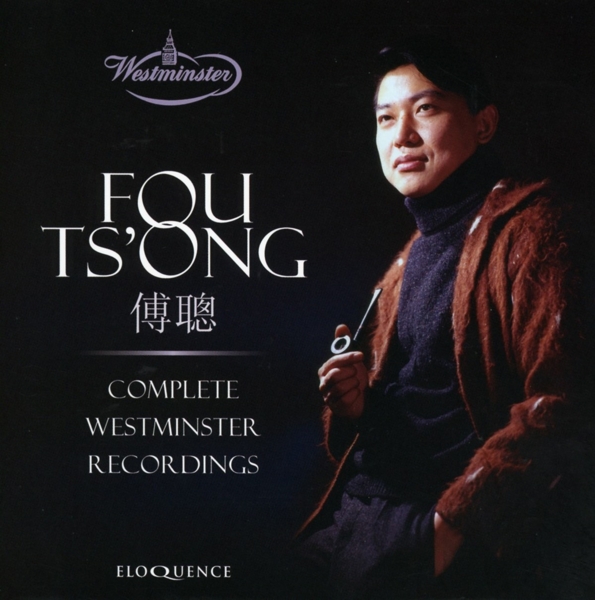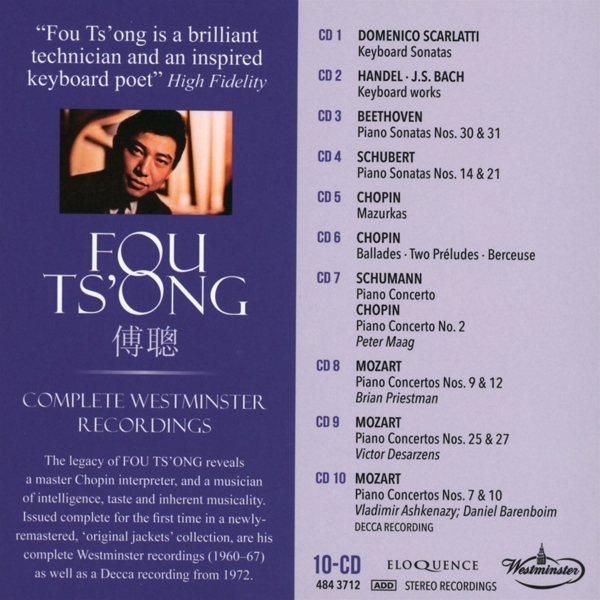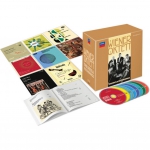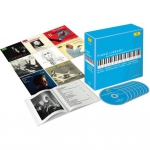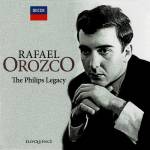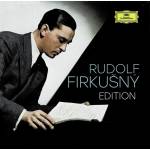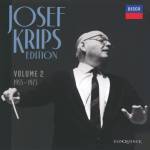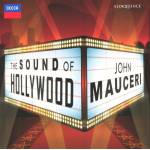Bisherige Auswahl:
keine Auswahl
Ergebnis einschränken:
|
 |
| Bemerkungen / Titelliste: |
01. "Sonate für Cembalo C-Dur K 132 (L 457)"
02. "Sonate für Cembalo c-moll K 73 (L 217)"
03. "Sonate für Cembalo G-Dur K 471 (L 82)"
04. "Sonate für Cembalo h-moll K 27 (L 449)"
05. "Sonate für Cembalo E-Dur K 380 (L 23)"
06. "Sonate für Cembalo A-Dur K 322 (L 483)"
07. "Sonate für Cembalo D-Dur K 389 (L 482)"
08. "Sonate für Cembalo A-Dur K 208 (L 238)"
09. "Sonate für Cembalo cis-moll K 247 (L 256)"
10. "Sonate für Cembalo E-Dur K 206 (L 257)"
11. "Sonate für Cembalo c-moll K 11 (L 352)"
12. "Sonate für Cembalo C-Dur K 515 (L 256)"
Suite für Cembalo II Nr. 2 G-Dur HWV 435 (Auszug)
01. "Chaconne"
Suite für Cembalo II Nr. 8 G-Dur HWV 441
02. "1. Allemande: Allegro"
03. "2. Allegro"
04. "3. Courante: Allegro vivace"
05. "4. Air: Presto"
06. "5. Menuett: Vivace"
07. "6. Gavotte: Allegro"
08. "7. Gigue: Presto"
Suite für Cembalo II Nr. 1 B-Dur HWV 434 (Auszug)
09. "4. Menuett"
Chromatische Fantasie und Fuge d-moll BWV 903
10. "1. Fantasie"
11. "2. Fuge"
12. "Capriccio B-Dur BWV 992 (über die Abreise seines geliebten Bruders) (bearb. für Klavier)"
Sonate für Klavier Nr. 30 E-Dur op. 109
01. "1. Vivace, ma non troppo - Adagio espressivo - Tempo I"
02. "2. Prestissimo"
03. "3. Gesangvoll, mit innigster Empfindung (Andante molto cantabile ed espressivo)"
Sonate für Klavier Nr. 31 As-Dur op. 110
04. "1. Moderato cantabile molto espressivo"
05. "2. Allegro molto"
06. "3. Adagio ma non troppo - Arioso dolente (Klagender Gesang)"
07. "4. Fuge: Allegro ma non troppo"
Sonate für Klavier a-moll op. 143 D 784
01. "1. Allegro giusto"
02. "2. Andante"
03. "3. Allegro vivace"
Sonate für Klavier B-Dur op. posth. D 960
04. "1. Molto moderato"
05. "2. Andante sostenuto"
06. "3. Scherzo: Allegro vivace con delicatezza"
07. "4. Allegro ma non troppo"
01. "Mazurka Nr. 3 E-Dur op. 6 Nr. 3"
02. "Mazurka Nr. 6 a-moll op. 7 Nr. 2"
03. "Mazurka Nr. 11 e-moll op. 17 Nr. 2"
04. "Mazurka Nr. 13 a-moll op. 17 Nr. 4"
05. "Mazurka Nr. 14 g-moll op. 24 Nr. 1"
06. "Mazurka Nr. 15 C-Dur op. 24 Nr. 2"
07. "Mazurka Nr. 17 b-moll op. 24 Nr. 4"
08. "Mazurka Nr. 18 c-moll op. 30 Nr. 1"
09. "Mazurka Nr. 19 h-moll op. 30 Nr. 2"
10. "Mazurka Nr. 25 h-moll op. 33 Nr. 4"
11. "Mazurka Nr. 27 e-moll op. 41 Nr. 2"
12. "Mazurka Nr. 32 cis-moll op. 50 Nr. 3"
13. "Mazurka Nr. 35 c-moll op. 56 Nr. 3"
14. "Mazurka Nr. 36 a-moll op. 59 Nr. 1"
15. "Mazurka Nr. 43 g-moll op. 67 Nr. 2"
16. "Mazurka Nr. 45 a-moll op. 67 Nr. 4"
17. "Mazurka Nr. 47 a-moll op. 68 Nr. 2"
18. "Mazurka Nr. 49 f-moll op. 68 Nr. 4"
01. "Ballade Nr. 1 g-moll op. 23"
02. "Ballade Nr. 2 F-Dur op. 38"
03. "Ballade Nr. 3 As-Dur op. 47"
04. "Ballade Nr. 4 f-moll op. 52"
05. "Pr?lude As-Dur op. posth. B 86"
06. "Pr?lude Nr. 25 cis-moll op. 45"
07. "Berceuse Des-Dur op. 57"
Konzert für Klavier und Orchester a-moll op. 54
01. "1. Allegro affettuoso"
02. "2. Intermezzo: Andantino grazioso"
03. "3. Allegro vivace"
Konzert für Klavier und Orchester Nr. 2 f-moll op. 21
04. "1. Maestoso"
05. "2. Larghetto"
06. "3. Allegro vivace"
Konzert für Klavier und Orchester Nr. 9 Es-Dur KV 271 "Jeunehomme-Konzert"
01. "1. Allegro"
02. "2. Andantino"
03. "3. Rondo: Presto - Menuett"
Konzert für Klavier und Orchester Nr. 12 A-Dur KV 414 (385p)
04. "1. Allegro"
05. "2. Andante"
06. "3. Rondo: Allegretto"
Konzert für Klavier und Orchester Nr. 25 C-Dur KV 503
01. "1. Allegro maestoso"
02. "2. Andante"
03. "3. Allegretto"
Konzert für Klavier und Orchester Nr. 27 B-Dur KV 595
04. "1. Allegro"
05. "2. Larghetto"
06. "3. Rondo: Allegro"
Konzert für Klavier und Orchester Nr. 7 F-Dur KV 242 "Lodron-Konzert" (für 3 Klaviere)
01. "1. Allegro"
02. "2. Adagio"
03. "3. Rondo: Tempo di menuetto"
Konzert für Klavier und Orchester Nr. 10 Es-Dur KV 365 (316a) (für 2 Klaviere)
04. "1. Allegro"
05. "2. Andante"
06. "3. Rondo: Allegro"
|
 | | Anzahl der Tonträger: |
10 |
 | | Beschreibung: | The Westminster label legacy of a master Chopin interpreter, issued complete for the first time in an 'original covers' box of new remasterings. Almost half a century before Lang Lang, the pianist Fou Ts'ong took Europe and then the US by storm. With his third-prize finish at the 1955 International Chopin Competition in Warsaw, listeners and critics alike were astonished to encounter a mature and seemingly instinctive feel for the uniquely Polish rhythms and passing harmonies of Chopin's music, under the fingers of a 21-year-old from Shanghai. Having undertaken further studies in Poland, Fou Ts'ong left his family behind and settled in London to escape the looming shadow of Chinese authoritarianism. He entered into a relationship with the Westminster label, for whom he would record nine albums between 1960 and 1967, all newly remastered and gathered together for the first time in the present collection. They encompass a good range of his repertoire predilections, as well as the scope of his youthful artist maturity. He is also joined by Daniel Barenboim and Vladimir Ashkenazy for a joyous traversal of Mozart's concertos with two and three pianos in a 1972 Decca recording. His Westminster collection of 12 Scarlatti sonatas was praised at the time for it's crisp, modern approach and vividly naturalistic touches. An album of Bach and Handel similarly reveals the intelligence, taste and inherent musicality which Fou Ts'ong brought to this repertoire on the modern concert grand. Several more Westminster albums demonstrate Fou's affinity for Mozart: not so surprising, given that he imprinted on his father's record collection with it's 78s of Artur Schnabel and Wanda Landowska. The pianist may have forsaken his homeland for good, but his musicianship encompassed both European and Chinese aesthetic ideals. He praised Chinese poetry for it's strength of feeling without excess: 'It has to remain dignified, spiritual and always beautiful'. These qualities also illuminate the albums of Beethoven and Schubert sonatas collected here. 'The Chinese are also very concerned with detail,' he said: 'Every part must be right, but on the other side the expression must be spontaneous and true,' and an appreciation for this fine balance made him associated above all with the music of Chopin. Although he recorded Chopin's Mazurkas at different times throughout his career, the group of eighteen issued by Westminster arguably represents his interpretations at their freshest and most creative. The Four Ballades likewise established a benchmark of sensitivity among a younger generation of Chopin pianists. The Second Concerto of Chopin, and it's original coupling of the Schumann Concerto appear in stereo on CD for the first time. The new collection makes a timely tribute to the artistry of a pianist who died of Covid-19 late last year., Runningtime: 00:00:00, Edited By: Karl Wolleitner, Edited By: Peter Curiel, Edited By: Philip Fradkin, Edited By: Ursula Stenz, Engineer: Adolf Enz, Engineer: Josef Kamykowski, Engineer: Peter Curiel, Engineer: Raymond Füglistaler, Engineer: Tryggvi Tryggvason, Executive Producer: Cyrus Meher-Homji, Liner Notes: Jed Distler, Mastered By: Peter Curiel, Piano: Fou Ts'Ong, Producer: Christopher Raeburn, Producer: Dr. Kurt List, Producer: Edgar P. Talmus, Producer: James Grayson, Producer: Peter Higgins (3), Project Manager: Cassandra Paz, Recording Supervisor: Dr. Kurt List, Remastered By: Chris Bernauer, Composed By: Domenico Scarlatti, Composed By: Georg Friedrich Händel, Composed By: Georg Friedrich Händel, Composed By: Georg Friedrich Händel, Composed By: Johann Sebastian Bach, Composed By: Johann Sebastian Bach, Composed By: Ludwig van Beethoven, Composed By: Ludwig van Beethoven, Composed By: Franz Schubert, Composed By: Franz Schubert, Composed By: Frédéric Chopin, Composed By: Frédéric Chopin, Composed By: Robert Schumann, Conductor: Peter Maag, Orchestra: London Symphony Orchestra, Composed By: Frédéric Chopin, Conductor: Peter Maag, Orchestra: London Symphony Orchestra, Composed By: Wolfgang Amadeus Mozart, Conductor: Brian Priestman, Orchestra: ORF Radio-Symphonieorchester Wien, Composed By: Wolfgang Amadeus Mozart, Conductor: Brian Priestman, Orchestra: ORF Radio-Symphonieorchester Wien, Cadenza: Johann Nepomuk Hummel, Composed By: Wolfgang Amadeus Mozart, Conductor: Victor Desarzens, Orchestra: Orchester Der Wiener Staatsoper, Cadenza: Wolfgang Amadeus Mozart, Composed By: Wolfgang Amadeus Mozart, Conductor: Victor Desarzens, Orchestra: Orchester Der Wiener Staatsoper, Composed By: Wolfgang Amadeus Mozart, Orchestra: English Chamber Orchestra, Piano: Vladimir Ashkenazy, Piano, Conductor: Daniel Barenboim, Composed By: Wolfgang Amadeus Mozart, Orchestra: English Chamber Orchestra, Piano: Vladimir Ashkenazy, Piano, Conductor: Daniel Barenboim, Labelcode ELOA843712.2 (484 3712), Record Company Universal Music GmbH, Manufactured By Universal Music Australia Pty Ltd, Marketed By Universal Classics & Jazz |  | | Anzahl der Titel: |
51 |
 | | Herstellernummer: |
ELQ4843712 |
 | Details zur Produktsicherheit
Verantwortliche Person für die EU:
Klassik Center
Dr. Rainer Kahleyss
Glöcknerpfad 47, 34134 Kassel, DE
info@klassikcenter-kassel.de |  |
|
Zu diesem Artikel liegen leider noch keine Bewertungen vor.
|  |
|
|
 |
|
|
|
|
|
|
| |
- Du besitzst "Fou Ts'ong, Klavier" oder kennst den Artikel bereits?
- Dann schreibe doch eine Produktbewertung.
- Wir belohnen deine Mühen mit Bewertungspunkten, einlösbar für exklusive Gratisartikel.
|
|
|
|
|
|
|
|
|

